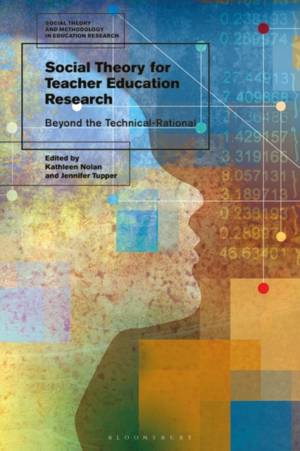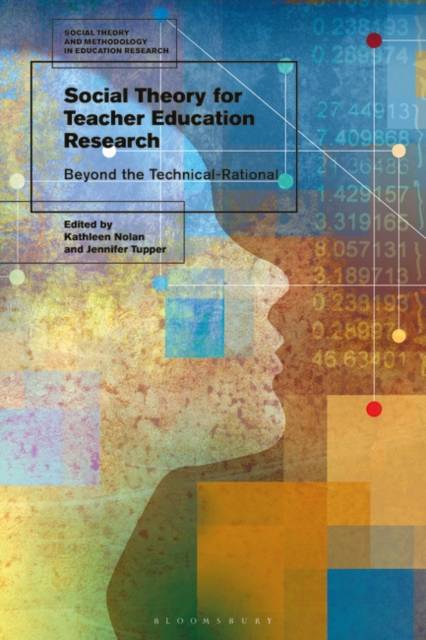
Bedankt voor het vertrouwen het afgelopen jaar! Om jou te bedanken bieden we GRATIS verzending (in België) aan op alles gedurende de hele maand januari.
- Afhalen na 1 uur in een winkel met voorraad
- In januari gratis thuislevering in België
- Ruim aanbod met 7 miljoen producten
Bedankt voor het vertrouwen het afgelopen jaar! Om jou te bedanken bieden we GRATIS verzending (in België) aan op alles gedurende de hele maand januari.
- Afhalen na 1 uur in een winkel met voorraad
- In januari gratis thuislevering in België
- Ruim aanbod met 7 miljoen producten
Zoeken
Social Theory for Teacher Education Research
Beyond the Technical-Rational
€ 271,45
+ 542 punten
Omschrijving
Traditionally, teacher education research theory and practice have had a technical-rational focus on productions of knowledge, skills, performance and accountability. Such a focus serves to (re)produce current educational systems instead of noticing and critiquing the wider modes of domination that permeate schools and school systems. In Social Theory for Teacher Education Research, Kathleen Nolan, Jennifer Tupper and the contributors make arguments for drawing on social theories to inform research in teacher education - research that moves the agenda beyond technical-rational concerns toward building a critically reflexive stance for noticing and unpacking the socio-political contexts of schooling.
The theories discussed include Actor-Network Theory (ANT), Cultural Historical Activity Theory (CHAT) and la didactique du plurilinguisme, and social theorists covered include Barad, Bernstein, Bourdieu, Braidotti, Deleuze, Foucault, Heidegger, and Nussbaum. The chapters in this book make explicit how innovative social theory-driven research can challenge and change teacher education practices and the learning experiences of students.
The theories discussed include Actor-Network Theory (ANT), Cultural Historical Activity Theory (CHAT) and la didactique du plurilinguisme, and social theorists covered include Barad, Bernstein, Bourdieu, Braidotti, Deleuze, Foucault, Heidegger, and Nussbaum. The chapters in this book make explicit how innovative social theory-driven research can challenge and change teacher education practices and the learning experiences of students.
Specificaties
Betrokkenen
- Uitgeverij:
Inhoud
- Aantal bladzijden:
- 288
- Taal:
- Engels
- Reeks:
Eigenschappen
- Productcode (EAN):
- 9781350086395
- Verschijningsdatum:
- 5/09/2019
- Uitvoering:
- Hardcover
- Formaat:
- Genaaid
- Afmetingen:
- 160 mm x 236 mm
- Gewicht:
- 589 g

Alleen bij Standaard Boekhandel
+ 542 punten op je klantenkaart van Standaard Boekhandel
Beoordelingen
We publiceren alleen reviews die voldoen aan de voorwaarden voor reviews. Bekijk onze voorwaarden voor reviews.








